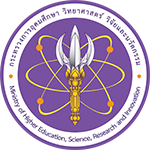Leadership Summit
.gif)
This is the Leadership Summit agenda for Bett Asia 2023 which is now over, register your interest for Bett Asia 2024.
The two-day Leadership Summit programme will explore topics nominated by policy and decision makers from K12 to HE which address key opportunities to improve education systems and further student outcomes across Asia. The plenary keynotes will be delivered by high-level speakers, followed by breakout HE, TVET, and K12 streams of workshops, demonstrations, discussions, and presentations.

Please use the below filters to curate your own Leadership Summit programme and find the sessions that will best address your setting-specific needs and priorities:
Day
Location
Themes
Registration
Wednesday 04 October 08:00 - 08:45 Plenary
General
Official Opening of Bett Asia 2023
Wednesday 04 October 08:45 - 08:50 Plenary
General
Speakers
Event Director, Bett Asia
Welcome and Chairperson's Introduction
Wednesday 04 October 08:50 - 08:55 Plenary
General
Speakers
Bett Asia Advisory Board Member and Pre-University Educator, Desa Mahkota Form Six College Malaysia
Address by BESA
Wednesday 04 October 08:55 - 09:00 Plenary
General
Speakers
Head of Partnerships and Events, British Educational Suppliers Association (BESA)
Address by Mark Gooding OBE, British Ambassador to Thailand
Wednesday 04 October 09:00 - 09:05 Plenary
General
Speakers
British Ambassador to Thailand
Ministerial Perspectives: Transforming minds for a sustainable future
Wednesday 04 October 09:05 - 10:00 Plenary
Innovation
Education Ministers, Ministerial representatives, and policymakers set out their vision and priorities for investing in national education systems across Asia to drive a more sustainable, resilient future.
Education Ministers, Ministerial representatives, and policymakers set out their vision and priorities for investing in national education systems across Asia to drive a more sustainable, resilient future.
Plenary Asia/ShanghaiModerator
Research, Evaluation and Assessment Specialist, Southeast Asian Ministers of Education Organization (SEAMEO) Secretariat
Speakers
YB Dato’ Mohammad Yusof bin Apdal
Deputy Minister, Ministry of Higher Education of Malaysia
Deputy Permanent Secretary (Higher Education), Ministry of Education of Brunei Darussalam
Under Secretary of State, Ministry of Education, Youth and Sport of Cambodia
Deputy Permanent Secretary, Ministry of Education of Thailand
AI in Education: Not new, just now
Wednesday 04 October 10:00 - 10:30 Plenary
Innovation
As new AI technology grabs headlines and captures imaginations, organisations have a unique opportunity to harness the power of AI to reimagine solutions to longstanding challenges in education at a time when they are perhaps needed most.
Speakers
Regional Business Leader, Education, Asia, Microsoft, Microsoft
Morning coffee break
Wednesday 04 October 10:30 - 11:00 Plenary
General
Driving the Future of Education: Three key trends
Wednesday 04 October 11:00 - 11:30 Plenary
General
As we march towards a radically different future, what should the role of education be and how might it look? Join Google for Education’s keynote session to learn more about trends and insights from Google’s Future of Education research, and how these trends are playing out specifically in schools in Asia.
As we march towards a radically different future, what should the role of education be and how might it look? Join Google for Education’s keynote session to learn more about trends and insights from Google’s Future of Education research, and how these trends are playing out specifically in schools in Asia.
Plenary Asia/ShanghaiSpeakers
Head of Southeast Asia & Greater China, Google for Education (Asia Pacific)
Harnessing the future of AI in education with Dr Ayesha Khanna
Wednesday 04 October 11:30 - 12:10 Plenary
Innovation
Join futurist and leading AI expert Dr Ayesha Khanna to explore future of AI in education and how educators and leaders can approach disruptive technologies with a mindset of curiosity and innovation. Dr Ayesha Khanna, Co-Founder and CEO of Addo, Futurist, and Artificial Intelligence Expert
Join futurist and leading AI expert Dr Ayesha Khanna to explore future of AI in education and how educators and leaders can approach disruptive technologies with a mindset of curiosity and innovation.
Dr Ayesha Khanna, Co-Founder and CEO of Addo, Futurist, and Artificial Intelligence Expert
Plenary Asia/ShanghaiSpeakers
Co-Founder & CEO of ADDO AI and Futurist
The New Era of Education: How transformative technology is enabling innovation and collaboration
Wednesday 04 October 12:10 - 12:40 Plenary
Innovation
Discover how transformative technology is enabling innovation and collaboration in education by drawing on examples of how educators and learners are harnessing these technologies to enhance teaching and learning, create new learning environments and experiences, and foster global citizenship and social justice
Speakers
Director, Education Transform and Development, Lenovo Central Asia Pacific
Lunch, networking break and opportunity to visit the exhibition area
Wednesday 04 October 12:40 - 13:50 Plenary
General
Chair Welcome
Wednesday 04 October 13:50 - 13:55 K12 Stream
General
Speakers
Director, Board Member, Global Education Adviser, Member of Bett's Global Education Council
Chair Welcome
Wednesday 04 October 13:50 - 13:55 HE Stream
General
Speakers
Asst Prof Dr Worajit Setthapun
Lecturer – the Asian Development College for Community Economy and Technology (adiCET), Chiang Mai Rajabhat University
Chair Welcome
Wednesday 04 October 13:50 - 13:55 Regional Showcase Stream (London Rooms)
General
Speakers
CEO & Founder, Lime Education
Leading with a mindset of change and transformation
Wednesday 04 October 13:55 - 14:25 K12 Stream
Wellbeing
With the rapid adoption of transformative technology redefining several aspects of our lives, what does this mean for schools, including the role of educators?
With the rapid adoption of transformative technology redefining several aspects of our lives, what does this mean for schools, including the role of educators?
K12 Stream Asia/ShanghaiModerator
Managing Director, Singapore Education Network
Speakers
Academic Director & Vice Chairman and Member of NAPEI , Erican Education Group Malaysia and National Association of Private Education Institutions (NAPEI, Malaysia)
Dr Jack Clancy Rugsancharoenphol
General Manager, KV Electronics Co Ltd
Educational Supervisor, Acting Deputy Director of Excellence in Science Education Bureau, Excellence in Science Education Bureau, The Office of the Basic Education Commission, Thai Ministry of Education
Official Opening of Higher Education Stream
Wednesday 04 October 13:55 - 14:05 HE Stream
General
Speakers
HE Assoc Prof Dr Pasit Lorterapong
Deputy Permanent Secretary, Ministry of Higher Education, Science, Research and Innovation of Thailand
Towards Internationalisation: Innovation development projects for Thai students
Wednesday 04 October 13:55 - 14:25 Regional Showcase Stream (London Rooms)
Innovation
Learn about the efforts of the Ministry of Education, private sector, and embassies in Thailand to promote international education for Thai students. Discover how innovative approaches to education are being implemented by the Thailand Ministry of Education’s Bureau of Educational Innovation Development to foster personal and professional growth among students. Through a hybrid foundation curriculum that addresses students' multi-intelligence differences, the Bureau is creating pathways for Thai students to study abroad and bridge the gap in undergraduate education in England, New Zealand, and Australia.
Learn about the efforts of the Ministry of Education, private sector, and embassies in Thailand to promote international education for Thai students. Discover how innovative approaches to education are being implemented by the Thailand Ministry of Education’s Bureau of Educational Innovation Development to foster personal and professional growth among students. Through a hybrid foundation curriculum that addresses students' multi-intelligence differences, the Bureau is creating pathways for Thai students to study abroad and bridge the gap in undergraduate education in England, New Zealand, and Australia.
Regional Showcase Stream (London Rooms) Asia/ShanghaiSpeakers
Director, British Academic Center
Deputy Director of Learning Organization Research and Development Unit, Bureau of Educational Innovation Development, Office of the Basic Education Commission, Ministry of Education
Project Analyst and Development Specialist (LORD OBEC Project), Learning Organization Research and Development, Office of the Basic Education Commission (LORD OBEC Project)
Embracing change in a shifting landscape
Wednesday 04 October 14:05 - 14:25 HE Stream
Innovation
In this opening session we’ll hear from AUAP on the latest trends in EdTech and how you can navigate the current Higher Education landscape.
In this opening session we’ll hear from AUAP on the latest trends in EdTech and how you can navigate the current Higher Education landscape.
HE Stream Asia/ShanghaiSpeakers
HE Assoc Prof Dr Pasit Lorterapong
Deputy Permanent Secretary, Ministry of Higher Education, Science, Research and Innovation of Thailand
Secretary-General, Association of Universities of Asia and the Pacific
Putting Learners First: Building a consistent student experience online
Wednesday 04 October 14:25 - 14:55 HE Stream
General
This presentation explores the planning behind building a digital ecosystem at Holy Angel University and how our institutional vocabulary and pedagogy had to adjust to make deployment seamless. In collaboration with Instructure
This presentation explores the planning behind building a digital ecosystem at Holy Angel University and how our institutional vocabulary and pedagogy had to adjust to make deployment seamless.
In collaboration with Instructure
HE Stream Asia/ShanghaiSpeakers
OIC President, Holy Angel University
Accelerating AI innovation in education
Wednesday 04 October 14:25 - 14:55 K12 Stream
Innovation
Discover how to harness AI to promote new skills and mindsets to equip educators and students for a digitally-rich future.
Speakers
General Manager - Education, Intel Corporation
The Power of Partnerships: Driving sustainable education development in Cambodia
Wednesday 04 October 14:25 - 14:55 Regional Showcase Stream (London Rooms)
Diversity & Inclusion
Join SeeBeyondBorders and the Cambodian Ministry to hear how, through partnerships with local communities, the Ministry of Education, and NGOs, education standards are being improved sustainably by training teachers, developing digital resources, and growing the next generation of educational leaders.
Join SeeBeyondBorders and the Cambodian Ministry to hear how, through partnerships with local communities, the Ministry of Education, and NGOs, education standards are being improved sustainably by training teachers, developing digital resources, and growing the next generation of educational leaders.
Regional Showcase Stream (London Rooms) Asia/ShanghaiSpeakers
Managing Director , SeeBeyondBorders
Under Secretary of State, Ministry of Education, Youth and Sport of Cambodia
Afternoon coffee break
Wednesday 04 October 14:55 - 15:30 K12 Stream
General
Bangladesh: Solving the eight largest education problems in the world
Wednesday 04 October 14:55 - 15:25 Regional Showcase Stream (London Rooms)
Diversity & Inclusion
Discover how Bangladesh is becoming the next major talent destination to address both local and global demands. Bangladesh, a nation of approximately 170 million people, boasts a demographic where over 50% of its population is under 25 years old. This demographic presents an ideal opportunity to rethink how to educate and skill this workforce for exponential impact on Bangladesh's future economy and the global talent pool. In this session, learn about the significant changes the Government of Bangladesh is implementing in its K12 education curriculum after decades, aligning it with current and future needs. This transformation also creates an ideal environment for private sectors to innovate and provide high-quality education and upskilling solutions at scale.
Discover how Bangladesh is becoming the next major talent destination to address both local and global demands.
Bangladesh, a nation of approximately 170 million people, boasts a demographic where over 50% of its population is under 25 years old. This demographic presents an ideal opportunity to rethink how to educate and skill this workforce for exponential impact on Bangladesh's future economy and the global talent pool.
In this session, learn about the significant changes the Government of Bangladesh is implementing in its K12 education curriculum after decades, aligning it with current and future needs. This transformation also creates an ideal environment for private sectors to innovate and provide high-quality education and upskilling solutions at scale.
Regional Showcase Stream (London Rooms) Asia/ShanghaiSpeakers
Cofounder & COO, 10 Minute School
From "why" to "why not": Accelerating transformation across Asia
Wednesday 04 October 14:55 - 15:25 HE Stream
Innovation
Today more than ever, universities are being asked to innovate and transform, whilst maintaining quality, scaling to meet new demands, and remaining sustainable and accessible. Join Microsoft to explore what the purposeful use of technology, now accelerated by AI, can achieve.
Speakers
IT Director, BINA NUSANTARA
Higher Education Director, Microsoft APAC, Microsoft
Afternoon coffee break
Wednesday 04 October 15:25 - 16:00 Regional Showcase Stream (London Rooms)
General
Afternoon coffee break
Wednesday 04 October 15:25 - 16:00 HE Stream
General
Empowering Students through STEM: Cuhk Faa Thomas Cheung Secondary School’s story in Hong Kong
Wednesday 04 October 15:30 - 16:00 K12 Stream
Innovation
Explore Cuhk Faa Thomas Cheung Secondary School’s journey in Hong Kong's STEM education, fostering innovation and empowering students for the future.
Speakers
Assistant Principal, Cuhk Faa Thomas Cheung Secondary School
Teacher, Cuhk Faa Thomas Cheung Secondary School
Personalised Teaching & Learning for All: What’s next in Malaysia
Wednesday 04 October 16:00 - 16:30 Regional Showcase Stream (London Rooms)
Innovation
Since launching DELIMa (Digital Educational Learning Initiative Malaysia) in 2020, Malaysia has taken significant leaps in digitally transforming education. Join Malaysia’s Ministry of Education to explore how personalisation can pave the way for engaging, equitable education and how Malaysia plans to harness transformative technologies such as AI to drive innovation and inclusivity in teaching & learning.
Speakers
Director, Educational Technology and Resources Division, Ministry of Education Malaysia
Cultivating an entrepreneurial mindset for jobs of the future
Wednesday 04 October 16:00 - 16:30 HE Stream
General
In this session we’ll hear from students on how Higher Education institutitons can help develop critical thinking skills and innovative attitudes for the future workplace.
In this session we’ll hear from students on how Higher Education institutitons can help develop critical thinking skills and innovative attitudes for the future workplace.
HE Stream Asia/ShanghaiSpeakers
Director of Academic Affairs and Lecturer, Chulalongkorn School of Integrated Innovation
Third Year BAScii Student, Former Student Council President, Chulalongkorn School of Integrated Innovation
Whole-school digital citizenship
Wednesday 04 October 16:00 - 16:45 K12 Stream
Innovation
Social media has gained significant prominence in education in recent years, transforming the way learners, educators, and educational institutions create content in teaching & learning, gather information, and interact within and beyond school settings. But where does this leave the conversation around online safety, and how can schools best approach this increasingly digital reality? This session will gather a range of experts and practitioners to discuss how schools can develop both learners and staff as resilient, responsible digital citizens who are empowered with the knowledge and skills to navigate the evolving online landscape.
Social media has gained significant prominence in education in recent years, transforming the way learners, educators, and educational institutions create content in teaching & learning, gather information, and interact within and beyond school settings. But where does this leave the conversation around online safety, and how can schools best approach this increasingly digital reality?
This session will gather a range of experts and practitioners to discuss how schools can develop both learners and staff as resilient, responsible digital citizens who are empowered with the knowledge and skills to navigate the evolving online landscape.
K12 Stream Asia/ShanghaiModerator
Director, Board Member, Global Education Adviser, Member of Bett's Global Education Council
Speakers
CEO, SeeBeyondBorders
Assistant President and Chief Information Officer (CIO), The Institute for the Promotion of Teaching Science and Technology (IPST)
Headteacher, Charterhouse Malaysia
Co-Founder, CEO Kids International
Group CEO, UCSI Schools Group
Developing AI literacy in students and staff
Wednesday 04 October 16:30 - 17:00 HE Stream
Innovation
Join this session to explore upskilling for staff and students in Generative AI and understand what pitfalls we can plan for when utilising this new tool.
Join this session to explore upskilling for staff and students in Generative AI and understand what pitfalls we can plan for when utilising this new tool.
HE Stream Asia/ShanghaiModerator
Asst Prof Dr Worajit Setthapun
Lecturer – the Asian Development College for Community Economy and Technology (adiCET), Chiang Mai Rajabhat University
Speakers
Chair Professor of Computational Media and Arts (CMA), Chair Professor of Emerging Interdisciplinary Areas, Director of the Center for Metaverse and Computational Creativity, and Director of the HKUST, Hong Kong University of Science and Technology
Director of Artificial Intelligence Research Group, National Electronics and Computer Technology Center (NECTEC), National Science and Technology Development Agency (NSTDA), Ministry of Higher Education, Science, Research and Innovation
The National Education Policy: on the Brink of an Educational Revolution in India
Wednesday 04 October 16:30 - 17:00 Regional Showcase Stream (London Rooms)
Innovation
Discover how the National Education Policy aims to revolutionise Indian education, fostering inclusivity, innovation, and skills for students to excel in a changing world. Introduced in 2020, the National Education Policy (NEP) in India represents a transformative shift towards a holistic, skill-based, and technology-driven educational approach and is poised to revolutionise the nation's learning landscape. This policy's emphasis on critical thinking, flexibility, and vocational education aims to prepare students for the demands of the 21st century. Find out how India is fostering a more inclusive, innovative, and skill-oriented system, ultimately preparing students to excel in a rapidly changing world.
Discover how the National Education Policy aims to revolutionise Indian education, fostering inclusivity, innovation, and skills for students to excel in a changing world.
Introduced in 2020, the National Education Policy (NEP) in India represents a transformative shift towards a holistic, skill-based, and technology-driven educational approach and is poised to revolutionise the nation's learning landscape. This policy's emphasis on critical thinking, flexibility, and vocational education aims to prepare students for the demands of the 21st century.
Find out how India is fostering a more inclusive, innovative, and skill-oriented system, ultimately preparing students to excel in a rapidly changing world.
Regional Showcase Stream (London Rooms) Asia/ShanghaiSpeakers
Deputy Director, Sunbeam Group of Educational Institutions India
Chair’s Closing Remarks
Wednesday 04 October 16:45 - 16:50 K12 Stream
General
Speakers
Director, Board Member, Global Education Adviser, Member of Bett's Global Education Council
All delegates to proceed to Leadership Summit K12 Stream for Bett Asia Awards, networking, and drinks
Wednesday 04 October 16:50 - 17:30 K12 Stream
General
Chair’s Closing Remarks
Wednesday 04 October 17:00 - 17:05 HE Stream
General
Speakers
Asst Prof Dr Worajit Setthapun
Lecturer – the Asian Development College for Community Economy and Technology (adiCET), Chiang Mai Rajabhat University
Chair’s Closing Remarks
Wednesday 04 October 17:00 - 17:05 Regional Showcase Stream (London Rooms)
General
Speakers
CEO & Founder, Lime Education
All delegates to proceed to Leadership Summit K12 Stream for Bett Asia Awards, networking, and drinks
Wednesday 04 October 17:05 - 17:30 HE Stream
General
All delegates to proceed to Leadership Summit K12 Stream for Bett Asia Awards, networking, and drinks
Wednesday 04 October 17:05 - 17:30 Regional Showcase Stream (London Rooms)
General
Bett Asia Awards
Wednesday 04 October 17:30 - 18:00 K12 Stream
General
End of Day 1
Wednesday 04 October 18:00 - 18:00 K12 Stream
General
End of Day 1
Wednesday 04 October 18:00 - 18:00 HE Stream
General
Invite-Only Breakfast Briefing: Innovate with AI in the Classroom: Build new skills for the future with Intel
Thursday 05 October 07:45 - 08:45 Breakout Session (London Rooms)
Innovation
Explore new resources that help educators and students harness the potential of AI and other digital skills in transforming the learning experience.
Speakers
General Manager - Education, Intel Corporation
Invite-Only Breakfast Briefing: Partnerships to realise the AI skills transition in Higher Education
Thursday 05 October 07:45 - 08:45 Breakout Session (London Rooms)
Innovation
Technology is evolving fast, with bridging the skills gap between students’ readiness and the demand from industries being critical to build pathways to employment.
Speakers
Higher Education Director, Microsoft APAC, Microsoft
Invite-Only Breakfast Roundtable: Create a student-centred and borderless campus with Lenovo Collaborative Learning
Thursday 05 October 07:45 - 08:45 Breakout Session (London Rooms)
Innovation
Join Lenovo for an exclusive, peer-to-peer roundtable session on how to create a student-centred, borderless campus for you Higher Education institution.
Speakers
Director, Education Transform and Development, Lenovo Central Asia Pacific
Chair Welcome
Thursday 05 October 09:00 - 09:05 K12 Stream
General
Speakers
Director, Board Member, Global Education Adviser, Member of Bett's Global Education Council
Chair Welcome
Thursday 05 October 09:00 - 09:05 HE Stream
General
Speakers
Asst Prof Dr Worajit Setthapun
Lecturer – the Asian Development College for Community Economy and Technology (adiCET), Chiang Mai Rajabhat University
Education for a sustainable future
Thursday 05 October 09:05 - 09:35 K12 Stream
Sustainability
The UN argues that education is a critical agent in addressing the issue of climate change and creating a better world for future generations. However, with the Asia-Pacific region accounting for most of the world’s new disaster and climate-related displacements – which poses significant barriers to the right to education - what role can educators and school communities play? Drawing on insight into region-wide policy development and practices within schools, this panel discussion will explore solutions-led approaches to ensuring climate-resilience across school communities, considering the role of technology, and developing and implementing a climate change curriculum relevant to specific localities and cultures.
The UN argues that education is a critical agent in addressing the issue of climate change and creating a better world for future generations. However, with the Asia-Pacific region accounting for most of the world’s new disaster and climate-related displacements – which poses significant barriers to the right to education - what role can educators and school communities play?
Drawing on insight into region-wide policy development and practices within schools, this panel discussion will explore solutions-led approaches to ensuring climate-resilience across school communities, considering the role of technology, and developing and implementing a climate change curriculum relevant to specific localities and cultures.
K12 Stream Asia/ShanghaiModerator
Deputy Director, Programme and Development, Southeast Asia Ministers of Education Organization (SEAMEO) Secretariat
Speakers
Programme Specialist for Education, UNESCO
Deputy Director, Sunbeam Group of Educational Institutions India
Scaling change and maximising impact in Higher Education
Thursday 05 October 09:05 - 09:35 HE Stream
Innovation
In this session, we’ll explore the values Higher Education institutions must embody to drive change in a modern world and foster a culture of innovation through learning. We will also look at how multi-level partnerships can maximise higher education impact and prepare learners for sustainable learning and living.
Speakers
Centre Director, Southeast Asian Ministers of Education Organization Regional Centre for Higher Education and Development (SEAMEO RIHED)
Unlocking AI's Potential: Transform learning experiences and prepare for the future
Thursday 05 October 09:35 - 10:05 K12 Stream
Sustainability
Discover the immense potential of AI in education and how it can empower K12 teachers to create transformative and engaging learning experiences, from personalised learning to language, maths tutors, and beyond.
Speakers
Director Education Modern Workplace, Microsoft
Nurturing future-ready graduates through interdisciplinary learning
Thursday 05 October 09:35 - 10:05 HE Stream
Innovation
This session highlights the pressing need to equip today's graduates with the skills for the future and empower students to thrive in the global economy.
This session highlights the pressing need to equip today's graduates with the skills for the future and empower students to thrive in the global economy.
HE Stream Asia/ShanghaiSpeakers
Dr. Klangjai S. Tawornpichayachai
Assistant to the President for Education Technology Development, King Mongkut's University of Technology Thonburi (KMUTT)
Chair Welcome
Thursday 05 October 09:45 - 09:50 TVET Stream (London Rooms)
General
Speakers
Senior Applied Research Specialist, Asian Development Bank (ADB)
Transforming TVET for the green transition
Thursday 05 October 09:50 - 10:30 TVET Stream (London Rooms)
Sustainability
As emphasised by the United Nations, climate change is the defining crisis of our time. There is a global responsibility to forge greener socio-economic systems at a rapid rate, which in turn requires the development of greener jobs and therefore greener skills training. This session will gather a range of perspectives from Asia’s TVET ecosystem to consider what the greening of skills development looks like in practice and how we can prepare the current and future workforce for an increasingly climate-conscious world.
As emphasised by the United Nations, climate change is the defining crisis of our time. There is a global responsibility to forge greener socio-economic systems at a rapid rate, which in turn requires the development of greener jobs and therefore greener skills training. This session will gather a range of perspectives from Asia’s TVET ecosystem to consider what the greening of skills development looks like in practice and how we can prepare the current and future workforce for an increasingly climate-conscious world.
TVET Stream (London Rooms) Asia/ShanghaiModerator
Senior Applied Research Specialist, Asian Development Bank (ADB)
Speakers
President, Institute of Vocational Education Bangkok Council, Office of the Vocational Education Commission
Enabling access and participation in student mobility programmes
Thursday 05 October 10:05 - 10:35 HE Stream
Diversity & Inclusion
The session will address the importance of ensuring multinational collaboration in a rapidly changing world. Join us to hear from APAIE on sustainable student mobility programmes.
Speakers
International Relations Expert, Mahidol University
Vice Provost (Education), Professor of Information Systems (Education), Singapore Management University
From Strawberry to Durian: How entrepreneurship education will future proof our children.
Thursday 05 October 10:05 - 10:35 K12 Stream
Innovation
Hear how through project-based, experiential learning, learners have been developing solutions for real-life problems. Understand why it is crucial to build entrepreneurial education into schools and discover practical strategies for how you can empower your learners with tools to develop their agency, problem-solving and entrepreneurial skills, and make a real impact beyond their school community.
Speakers
Co-Founder, CEO Kids International
Morning coffee break
Thursday 05 October 10:30 - 11:00 TVET Stream (London Rooms)
General
Morning coffee break
Thursday 05 October 10:35 - 11:00 HE Stream
General
Morning coffee break
Thursday 05 October 10:35 - 11:00 K12 Stream
General
Digital upskilling for all
Thursday 05 October 11:00 - 11:40 TVET Stream (London Rooms)
Diversity & Inclusion
The demand for digital skills in Asia is significantly high, with the Asian Development Bank’s survey of employers in Asia and the Pacific revealing that 75% of employers in four countries now have increased demand for new hires with digital skills. But with ongoing high unemployment rates and gender-based barriers impacting women’s access to education and employment, how can this demand for digital skills be met effectively? This session will consider practical approaches to ensure equitable digital upskilling across Asia, engage harder-to-reach prospective workers, and power the labour market by building a diverse, competent talent pool.
The demand for digital skills in Asia is significantly high, with the Asian Development Bank’s survey of employers in Asia and the Pacific revealing that 75% of employers in four countries now have increased demand for new hires with digital skills. But with ongoing high unemployment rates and gender-based barriers impacting women’s access to education and employment, how can this demand for digital skills be met effectively? This session will consider practical approaches to ensure equitable digital upskilling across Asia, engage harder-to-reach prospective workers, and power the labour market by building a diverse, competent talent pool.
TVET Stream (London Rooms) Asia/ShanghaiModerator
Senior Applied Research Specialist, Asian Development Bank (ADB)
Speakers
Vice President, Office of National Higher Education Science Research and Innovation Policy Council (NXPO)
Managing Director and AI Lead, Otermans Institute
Project Officer, Education, UNESCO Multisectoral Regional Office in Bangkok
Cybersecurity in Education: New tools for a comprehensive security strategy
Thursday 05 October 11:00 - 11:30 HE Stream
Innovation
Join us to explore the latest security technologies that help protect data and users from sophisticated cyberthreats.
Speakers
Public Sector and Education Specialist, Intel Technology Asia
Scaling Quality Teacher Professional Development: A case study of the Philippines
Thursday 05 October 11:00 - 11:30 K12 Stream
Innovation
Drawing on key learnings from studies in the Philippines, discover what it takes to scale equitable, quality, and efficient teacher professional development.
Drawing on key learnings from studies in the Philippines, discover what it takes to scale equitable, quality, and efficient teacher professional development.
K12 Stream Asia/ShanghaiSpeakers
Deputy Director, Programme and Development, Southeast Asia Ministers of Education Organization (SEAMEO) Secretariat
Chair Professor of Learning Technologies and Innovation, The Education University of Hong Kong
Senior Program Manager, Foundation for Information Technology Education and Development Inc. (FIT-ED)
Executive Director, Foundation for Information Technology Education and Development Inc. (FIT-ED)
Leading a whole-school diversity & inclusion strategy
Thursday 05 October 11:30 - 12:00 K12 Stream
General
Diversity and inclusion in schools across Asia – and within individual countries across Asia - varies significantly due to the region’s differing cultural, social, and economic contexts. It is therefore essential for schools to adopt a contextually responsive approach to ensure they meet the needs of their learners, staff, and the wider school community.
Speakers
Assistant Professor, University of Nottingham Malaysia (UNM)
Opportunities and challenges for the metaverse generation
Thursday 05 October 11:30 - 12:00 HE Stream
Innovation
Join Pradeep Khanna as we explore the impact and potential of emerging technologies on Higher Education.
Speakers
Executive Director Asia Pacific, CEO, Co-Founder, VR AR Association, Global Mindset, INSquare
Global collaboration for a resilient workforce
Thursday 05 October 11:40 - 12:10 TVET Stream (London Rooms)
Innovation
With the job market evolving at an exponential rate in an increasingly interconnected world, it is more important than ever for TVET providers, government, and industry both within and beyond Asia to align efforts to develop a viable, agile workforce that can continuously upskill and reskill. Drawing on the experience and work of current cross-sector projects, this session will highlight what successful collaboration between TVET stakeholders looks like and how to harness the power of partnerships to create a culture of lifelong learning and a resilient, globally-aware workforce.
With the job market evolving at an exponential rate in an increasingly interconnected world, it is more important than ever for TVET providers, government, and industry both within and beyond Asia to align efforts to develop a viable, agile workforce that can continuously upskill and reskill. Drawing on the experience and work of current cross-sector projects, this session will highlight what successful collaboration between TVET stakeholders looks like and how to harness the power of partnerships to create a culture of lifelong learning and a resilient, globally-aware workforce.
TVET Stream (London Rooms) Asia/ShanghaiSpeakers
Vice President, Chief Thailand Business Strategist, Western Digital Storage Technologies (Thailand) Ltd.
Chair’s Closing Remarks
Thursday 05 October 12:00 - 12:05 HE Stream
General
Speakers
Asst Prof Dr Worajit Setthapun
Lecturer – the Asian Development College for Community Economy and Technology (adiCET), Chiang Mai Rajabhat University
Chair’s Closing Remarks
Thursday 05 October 12:00 - 12:00 K12 Stream
General
Lunch, networking break and opportunity to visit the exhibition area
Thursday 05 October 12:05 - 13:00 HE Stream
General
Lunch, networking break and opportunity to visit the exhibition area
Thursday 05 October 12:05 - 13:00 K12 Stream
General
Chair’s Closing Remarks
Thursday 05 October 12:10 - 12:15 TVET Stream (London Rooms)
General
Speakers
Senior Applied Research Specialist, Asian Development Bank (ADB)
Lunch, networking break and opportunity to visit the exhibition area
Thursday 05 October 12:15 - 13:00 TVET Stream (London Rooms)
General
Welcome Back Introductions
Thursday 05 October 13:00 - 13:05 Plenary
General
Speakers
Bett Asia Advisory Board Member and Pre-University Educator, Desa Mahkota Form Six College Malaysia
Think Global, Act Local: Education innovations transforming the way we learn
Thursday 05 October 13:05 - 13:35 Plenary
Innovation
How can we harness education innovations to improve learning results and transform education systems in different contexts?
How can we harness education innovations to improve learning results and transform education systems in different contexts?
Plenary Asia/ShanghaiSpeakers
Country Lead, HundrED (Finland)
Systemic leadership for sustainable development in schools
Thursday 05 October 13:35 - 14:05 Plenary
Innovation
What will it take to empower sustainable transformation in our schools, our teachers, and our students?
What will it take to empower sustainable transformation in our schools, our teachers, and our students?
Plenary Asia/ShanghaiSpeakers
CEO and Co-Founder , Edvolution Enterprise
Changemaking Starts in the Classroom: Empower the next generations for a sustainable future
Thursday 05 October 14:05 - 14:45 Plenary
Innovation
Join Full Time Changemaker and youth movement builder Melati Wijsen (Founder of YOUTHTOPIA) as she unpacks the significance of empowering youth for a sustainable future. Gain invaluable perspectives on fostering the next generation of global changemakers who can thrive in and lead a disruptive future of working, learning, and living.
Speakers
Founder, Bye Bye Plastic Bags and YOUTHTOPIA and Full Time Changemaker
Chair’s Closing Remarks
Thursday 05 October 14:45 - 15:00 Plenary
General
Speakers
Bett Asia Advisory Board Member and Pre-University Educator, Desa Mahkota Form Six College Malaysia
Bett Asia School Challenge Awards Ceremony
Thursday 05 October 15:00 - 15:35 Plenary
Innovation
An exciting new initiative for 2023, the Bett Asia School Challenge is a Southeast Asia-wide competition for students aged 7-17, created to promote big-thinking and innovative ideas on a large scale, to help provide solutions for schools and education issues using the United Nations Sustainable Development Goals (SDGs). Following the exciting in-person live final in the Classroom Theatre at the show, find out which student teams will be crowned as the winners of the Challenge! In collaboration with Google
An exciting new initiative for 2023, the Bett Asia School Challenge is a Southeast Asia-wide competition for students aged 7-17, created to promote big-thinking and innovative ideas on a large scale, to help provide solutions for schools and education issues using the United Nations Sustainable Development Goals (SDGs).
Following the exciting in-person live final in the Classroom Theatre at the show, find out which student teams will be crowned as the winners of the Challenge!
In collaboration with Google
Plenary Asia/ShanghaiNo result - please try again.














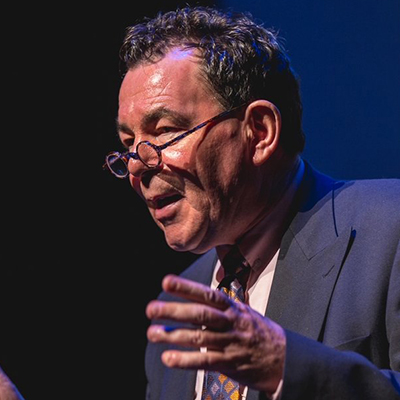




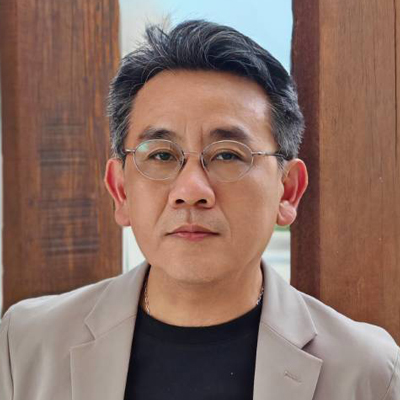










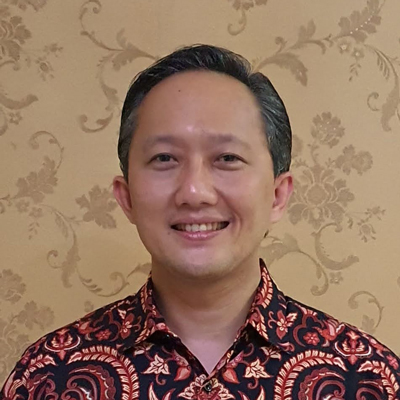
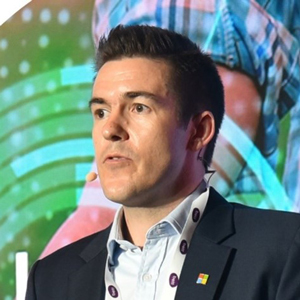










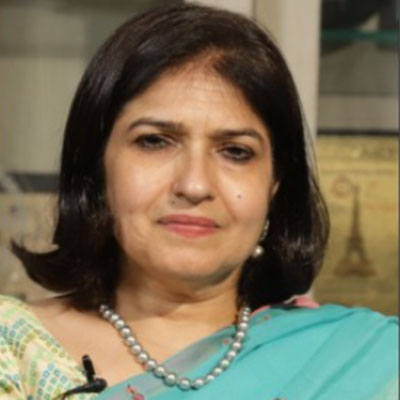







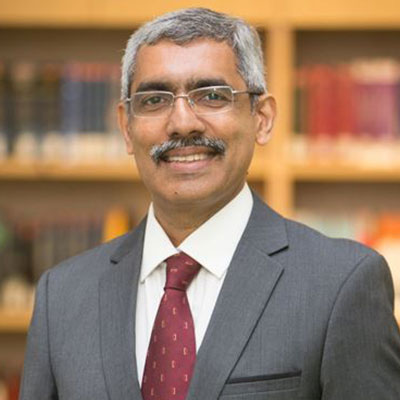


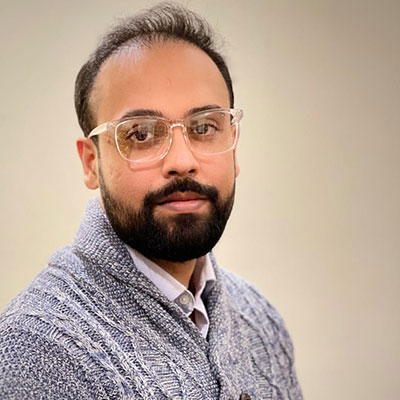






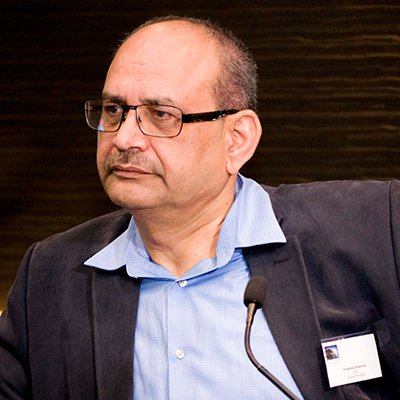




.png?width=423&height=100&ext=.png)





.png?ext=.png)

